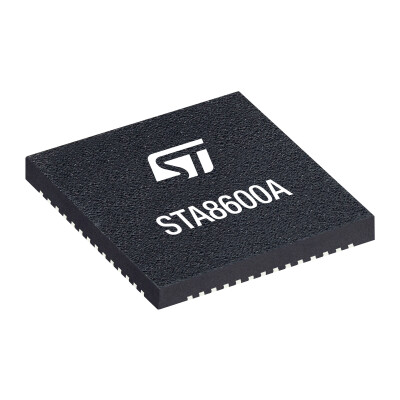Having gone live last month and with just over 20 days to go, the Onion Tau lidar camera crowdfunding has already surpassed its $15,000 funding goal. Their 3D depth camera works like a regular webcam except it produces 3D depth data instead of color frames.
As a USB-based, plug-and-play camera, the Tau lidar starts collecting real-time 3D point cloud data as soon as it is connected to any computer. Featuring a depth stream output resolution of 160 x 60 at 30 fps, the Tau camera has an 81˚ x 30° field-of-view, and a scanning range between 0.1 to 4.5 meters. The collected data can be visualized in 3D or 2D, or used as input (2D depth maps, 3D point clouds, regular 2D images, or an array/matrix objects) for a program or algorithm.
To easily see the depth data from the Tau camera, Onion developed the Tau Studio Web App. Based on a Python program and a web app built with HTML and javascript, the Tau Studio allows users to visualize the camera output (a greyscale image, a depth map, and a 3D point cloud) in real-time. Additionally, users can manipulate that data with controls such as pan, rotate, and zoom, or change the 3D integration time, color range, and point size.
With its small size (90 x 41 x 20 mm) and four mounting holes, the Tau camera easily integrates with other hardware for applications beyond depth data collection. The camera’s OpenCV-compatible Python API allows users to adapt it for use cases like environment mapping (like SLAM), augmented reality, computer vision applications, person counting/presence detection, object detection, robotics, automation, and self-driving cars.
“For example, it can be combined with an IMU sensor for SLAM-style environment mapping,” the company’s crowdfunding page reads.
“Are you interested in augmented reality? Use the Tau camera with an RGB camera to create accurate AR scenes. New iPhones are already using this technique – by using RGB and LiDAR cameras in tandem, you can create super accurate AR.”
At a $179 price point, the Tau lidar camera can be a strong contender in the low-cost lidar space, where Terabee’s low-cost 3D time-of-flight camera for indoor depth sensing applications, 3Dcam, Intel’s RealSense T265 and L515, and more reside. While there’s no release date yet, Onion plans to start manufacturing the cameras in February 2021.






